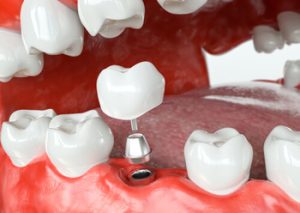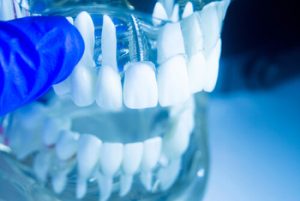Choosing the right location for getting dental implants is a significant decision, especially when considering costs. While the dental implant price in Bangkok might initially seem attractive, a deeper look reveals why Australia is the superior choice for this important dental procedure. This blog will explore the hidden risks of getting dental implants in Bangkok and highlight why Australian clinics offer a safer and more cost-effective solution.
What Exactly Is a Dental Implant? Uncovering Its Amazing Benefits
A dental implant is a titanium screw that acts as an artificial tooth root, surgically embedded into the jawbone to anchor a replacement tooth or bridge. It offers a secure and lasting solution, creating a solid base for fixed or removable replacement teeth that integrate seamlessly with your natural teeth.
The Incredible Benefits of Dental Implants
- Natural Look and Feel: Implants mimic the look, feel, and function of your natural teeth.
- Clearer Speech: Say goodbye to slurring or mumbling, often caused by ill-fitting dentures.
- Ultimate Comfort: As they become a permanent part of your mouth, implants eliminate the discomfort associated with removable dentures.
- Improved Oral Health: They don’t compromise surrounding teeth, preserving more of your natural tooth structure.
- Long-Lasting Durability: With proper care, implants can last a lifetime.
- Better Eating Experience: Enjoy your favourite foods with confidence and without discomfort.
- Prevents Bone Loss: Implants maintain jawbone health, preventing deterioration over time.
- Boosts Confidence: Restore your smile and feel more self-assured in social and professional settings.
The Allure of Dental Tourism: Why People Travel Overseas for Treatment
Dental tourism has seen a surge in popularity, with people travelling overseas to seek dental treatments at seemingly lower prices. The main attraction is the potential cost savings for dental implants, dentures, root canal treatment, and other dental treatments, which can be significantly cheaper in countries like Thailand, Vietnam, and Turkey than in Australia. For many, this makes it possible to access treatments that might otherwise be unaffordable. Additionally, the promise of combining dental work with an exotic holiday adds to the appeal, allowing patients to enjoy a vacation while getting the treatment they need.
Another reason people turn to dental tourism is the shorter wait times and the convenience of having multiple treatments completed within a single trip. Many overseas clinics market themselves with high-quality, state-of-the-art facilities, which further entices patients who are eager to regain their smiles without breaking the bank.
However, while dental tourism may seem like an attractive option, it carries risks and hidden costs that can lead to complications and additional expenses in the long run.
Dental Implant Treatment in Australia vs Bangkok: A Detailed Comparison
Choosing where to get dental implants is a critical decision, and while Bangkok may seem appealing, Australia offers unmatched advantages that make it the superior choice. Here’s a detailed comparison between the two countries, tipping in favour of Australia.
Quality of Care Provided
Australia: Offers high-quality dental care with strict regulatory standards to ensure safety and excellence. Dental clinics are regularly monitored to maintain high levels of hygiene, safety, and patient care.
Bangkok: While some clinics maintain good standards, quality can vary significantly. Many clinics might not adhere to the rigorous regulations found in Australia, increasing the risk of complications.
Materials Used for Dental Implants
Australia: Uses premium, biocompatible materials from trusted dental implant brands, such as Roxolid implants, ensuring durability and long-term success.
Bangkok: Although some clinics use quality materials, others might opt for cheaper alternatives to cut costs, which can compromise the longevity and success of the implants.
Expertise of Dental Professionals
Australia: Dentists undergo extensive training, hold internationally recognised qualifications, and adhere to high professional standards. Many have years of experience, specifically in implant procedures.
Bangkok: While some dentists are skilled, the variability in qualifications and experience means you might not always receive treatment from an expert in dental implants.
Language Barriers
Australia: No language barriers exist, ensuring clear and effective communication throughout your treatment. You can comfortably ask questions and understand the treatment plan, reducing misunderstandings.
Bangkok: Language differences can lead to communication challenges, making it harder to fully grasp the details of your procedure, risks, and aftercare instructions.
Follow-Up and Aftercare
Australia: Provides comprehensive follow-up care, ensuring the implant heals correctly and addressing any concerns promptly. Ongoing support from dental team is always available, which is crucial for the success of dental implants.
Bangkok: Once you return home, follow-up care becomes difficult. Any complications or issues might require you to travel back to Bangkok, incurring extra costs and inconvenience.
Support of Being Local and Family
Australia: Being treated close to home means you have the emotional and practical support of family and friends, making the recovery process much easier and less stressful.
Bangkok: Dental tourists often travel alone or with minimal support, which can make the treatment and recovery period feel isolating, especially if complications arise.
Long-Term Costs and Hidden Expenses
Australia: Although the initial price may be higher, the comprehensive packages offered by Australian clinics mean you won’t face unexpected additional costs. The quality of care also reduces the risk of needing further corrective treatments.
Bangkok: While the upfront treatment cost may be lower, hidden expenses such as consultation fees, CT scans, bone grafting, travel, accommodation, and potential corrective treatments can add up, making it more expensive in the long run.
Safety and Hygiene Standards
Australia: Australian clinics adhere to stringent safety and hygiene protocols, minimising the risk of infection and complications during and after the implant procedure.
Bangkok: Safety and hygiene standards vary greatly, and not all clinics maintain the same level of cleanliness and sterilisation practices.
Access to Insurance and Financing Options
Australia: Many Australian health funds cover part of the dental implant costs, and clinics often offer flexible in-house payment options, making it easier to manage the expenses.
Bangkok: Most insurance plans don’t cover treatments performed overseas, and you’re unlikely to find financing options available for international patients.
Peace of Mind and Security
Australia: Offers peace of mind knowing your dental treatment is conducted under a highly regulated system, and any problems can be addressed promptly by your local dentist.
Bangkok: The risk of complications, language barriers, and absence of legal recourse if something goes wrong can lead to anxiety and uncertainty.
The Need for Additional Treatments: Bone Grafts and Sinus Lifts
 Australia: Australian dental clinics conduct a thorough assessment, including CT scans, to determine the need for additional procedures like bone grafting, sinus lifts or treating significant posterior bone loss before implant placement. Before the implant surgery. This ensures that the jawbone is strong enough to support the implant, leading to a higher success rate. These procedures are performed by experienced professionals, and the cost is often included in the treatment plan, so there are no surprises.
Australia: Australian dental clinics conduct a thorough assessment, including CT scans, to determine the need for additional procedures like bone grafting, sinus lifts or treating significant posterior bone loss before implant placement. Before the implant surgery. This ensures that the jawbone is strong enough to support the implant, leading to a higher success rate. These procedures are performed by experienced professionals, and the cost is often included in the treatment plan, so there are no surprises.
Bangkok: While some Bangkok clinics offer bone grafts or sinus lifts, they may not always be included in the initial quoted price. This can lead to unexpected expenses. Additionally, the quality and expertise for these procedures may vary, which can impact the overall success and stability of the implant.
Recovery Times
Australia: Due to the use of advanced techniques, high-quality materials, and precise implant placement, recovery times in Australia are generally more efficient. Follow-up care is readily available, ensuring a smooth and monitored healing process. The comprehensive aftercare support helps minimise complications, resulting in a quicker recovery.
Bangkok: Recovery times may be longer in Bangkok due to potential complications, limited access to follow-up care, and the need to travel back home soon after the procedure. Without local aftercare support, any issues that arise during recovery might delay the healing process, making it more challenging to achieve optimal results.
Success Rate and the Need for Corrections
Australia: The success rate of dental implants in Australia is exceptionally high, often above 95%, due to the use of high-quality materials, experienced dental professionals, and strict adherence to safety protocols. This means there’s a significantly lower likelihood of requiring corrections or adjustments after the initial implant placement.
Bangkok: While some clinics report good success rates, the overall variability in quality and expertise can lead to a higher possibility of implant failure or complications. If corrections are needed, patients may have to return to Bangkok or seek costly treatments back in Australia, negating any perceived savings.
Starting Prices for Dental Implants: Australia vs Bangkok
When comparing the cost of dental implants, it’s essential to consider the starting prices in both countries and what they actually cover. Here’s a breakdown of the starting prices in AUD:
Bangkok:
The initial cost for a single dental implant in Bangkok is around 1,500 AUD. However, this price often excludes additional treatments, such as consultation fees, CT scans, bone grafting, or follow-up care, which can significantly increase the overall cost.
Australia:
The initial cost for a single dental implant in Australia is around 3,000 AUD. While this might seem higher initially, this price often includes more comprehensive services such as consultation, CT scans, implant placement, follow-up care, and any necessary adjustments.
While the upfront treatment fees may appear lower in Bangkok, the hidden expenses can quickly add up, often making the total cost comparable to or even higher than getting the procedure done in Australia, where all-inclusive care and quality are guaranteed.
The Dental Implant Procedure: Step-by-Step Guide
Getting a dental implant is a transformative journey to restore your smile, and understanding the process can help ease any concerns you might have. Here’s a step-by-step guide to the dental implant procedure, laid out in a way that’s easy to follow.
Initial Consultation and Examination
Your journey starts with a consultation with a qualified dentist. During this visit:
- A comprehensive examination of your mouth and jaw is conducted.
- X-rays or CT scans are taken to evaluate the health of your jawbone and determine if it’s suitable for an implant.
- Your dentist will go over your treatment plan with you, including any extra procedures that might be required, such as bone grafting.
Preparing for the Implant: Bone Grafting or Sinus Lifts (If Needed)
If your jawbone lacks the necessary density or volume, a bone graft or sinus lift might be required to provide a stable foundation for the implant. This procedure involves adding bone material to strengthen the implant site, and it can take a few months to heal.
Implant Placement Surgery
Once your jawbone is ready, the implant placement surgery is scheduled. Here’s what happens:
- The dentist makes a small incision in the gum to expose the bone.
- A small hole is drilled into the bone where the titanium implant post is inserted.
- The gum is then stitched back over the implant, and the healing process begins.
Healing and Osseointegration
The healing period, known as osseointegration, can take 3 to 6 months. During this time:
- The implant gradually blends with the jawbone, creating a stable and secure foundation.
- You’ll have regular check-ups to monitor your progress and ensure everything is healing properly.
Attaching the Abutment
Once osseointegration is complete, a small connector piece called an abutment is attached to the implant post. This includes a minor surgical procedure where the gum is reopened, and the abutment is placed on top of the single implant post.
Placing the Dental Crown
The final step is fitting the dental crown, which is customised to mimic the colour, shape, and size of your natural teeth. The crown is fixed to the abutment, completing your dental implant.
Factors Influencing the Price of a Dental Implant
The price of a dental implant varies widely based on several factors. Here’s a breakdown of what affects the overall price and what you’re paying for.
Number of Implants Needed
Single Tooth Replacement: Replacing a single missing tooth is more affordable than multiple implants.
Multiple Implants: Costs rise if you require implants for multiple missing teeth or a full-mouth restoration.
The Need for Additional Procedures
Bone Grafting or Sinus Lifts: If your jawbone needs strengthening, these procedures add to the overall cost.
Tooth Extraction: If a tooth needs to be removed before placing the implant, this will add to the overall cost.
Implant Materials and Brand
High-Quality Materials: The cost differs depending on the dental implant brand and the quality of the materials used. Premium brands that offer long-lasting results may be more expensive but provide better value in the long term.
Location of the Dental Clinic
City vs Regional Clinics: Dental clinics in major cities typically charge more due to higher operating costs, while regional clinics might offer more competitive prices.
Expertise and Experience of the Dentist
Qualified Professionals: Choosing an experienced dentist with extensive training in implant procedures may cost more but ensures a higher success rate and better quality of care.
Type of Dental Crown
Material Choices: Crowns can be made from porcelain, ceramic, or metal, each with different price points. Porcelain and ceramic crowns, which closely resemble natural teeth, are typically more expensive.
What Does the Cost Include?
When you pay for a dental implant, you’re investing in more than just the implant itself. Here’s a breakdown of what the dental implants cost typically includes:
- Initial Consultation and Examination: The first appointment is when your dentist assesses your suitability for the procedure.
- X-rays and CT Scans: Necessary imaging to evaluate your jaw bone and plan the treatment.
- Surgical Procedure: The fees for implant placement surgery, including anaesthesia and any necessary equipment.
- The Implant Post and Abutment: The titanium post serves as the artificial tooth root and the connector piece that holds the crown in place.
- The Dental Crown: The final tooth replacement that completes your implant.
- Follow-Up Visits: Regular check-ups to monitor your healing phase and guarantee the success of the implant.
Top 10 FAQs About Dental Implants: Everything You Need to Know
By knowing these essential FAQs, you can make a proper decision about getting dental implants and feel confident about the process ahead.
How Long Does a Dental Implant Procedure Take?
The entire dental implant process can take from three to nine months, depending on factors like bone health, whether additional procedures (such as bone grafting) are needed, and the healing period. The actual implant placement surgery takes about 1 to 2 hours, but osseointegration (the healing phase where the implant fuses with the bone) requires a few months.
Are Dental Implants Painful?
Most patients report minimal discomfort during the procedure, as local anaesthesia is used to numb the area. After the surgery, some mild soreness and swelling can be expected, but this can be easily managed with pain medication prescribed by your dentist. The discomfort typically subsides within a few days.
How Long Do Dental Implants Last?
With the right care, dental implants can endure a lifetime. The implant post is designed to be a permanent solution, meanwhile, the dental crown might require replacement after 10-15 years because of regular wear and tear.
Can Anyone Get Dental Implants?
Most people who have healthy gums and sufficient density of the jaw bone are eligible candidates for dental implants. However, individuals with certain medical conditions (such as uncontrolled diabetes or gum disease) or heavy smokers may need additional evaluation to determine their eligibility.
How Do I Care for My Dental Implants?
Caring for dental implants is similar to caring for natural teeth. Regular brushing, flossing, and dental check-ups are essential. It’s also important to avoid habits like smoking and chewing hard foods, as these can damage the implant or surrounding gum tissue.
What Are the Potential Risks or Complications of Dental Implants?
As with any surgical procedure, there are some risks, such as infection, nerve damage, or implant failure. However, these complications are rare, especially when performed by an experienced dental professional. Maintaining good oral hygiene and committing to follow-up visits can help minimise risks.
How Much Does a Full-Mouth Dental Implant Cost Compared to a Single Implant?
A single dental implant typically starts at 3,000 AUD, whereas a full-mouth dental implant can start at 15,000 AUD, depending on the complexity and type of implants used. Full-mouth implants involve multiple implant posts and crowns, which explains the higher cost.
How Long Do I Need to Wait After Tooth Extraction Before Getting an Implant?
The waiting period before getting an implant after a tooth extraction varies based on individual circumstances. In some cases, the implant can be immediately placed after extraction, while in others, a healing period of 3 to 6 months is required to allow the bone to heal adequately.
Can Dental Implants Replace All My Missing Teeth?
Yes, dental implants are versatile and can be used to replace a single missing tooth, multiple missing teeth, or even a full arch of teeth. For multiple missing teeth, options include implant-supported bridges or full-arch implant dentures, providing a stable and long-lasting solution.
Do Health Insurance Plans in Australia Cover Dental Implants?
Health insurance coverage for dental implants varies based on your policy. Some health funds may partially cover the treatment cost, especially if you have extras covered for major dental work. It’s recommended to contact your insurance provider to know your coverage options.
Conclusion: Why Australia Is the Clear Winn
 While searching for a low dental implant price, Bangkok may seem like a cheaper option at many dental clinics, the quality, safety, and long-term value of getting dental implants in Australia far outweigh the perceived savings of dental tourism. The expertise of Australian dental professionals, access to high-quality materials, comprehensive follow-up care, and the comfort of being treated locally make Australia the smarter, safer land of smiles and, ultimately, more cost-effective choice for dental implants.
While searching for a low dental implant price, Bangkok may seem like a cheaper option at many dental clinics, the quality, safety, and long-term value of getting dental implants in Australia far outweigh the perceived savings of dental tourism. The expertise of Australian dental professionals, access to high-quality materials, comprehensive follow-up care, and the comfort of being treated locally make Australia the smarter, safer land of smiles and, ultimately, more cost-effective choice for dental implants.
If you’re ready to explore your dental implant options or have questions about the procedure, reach out to Beyond Infinity Dental at (02) 8806 3799 today. It’s the best decision you can make for your oral health and overall well-being.
Note: Any surgical or invasive procedure carries risks. Before proceeding, you should seek a second opinion from an appropriately qualified health practitioner.
References:
Cleveland Clinic. (n.d.). Dental bone graft. Cleveland Clinic. https://my.clevelandclinic.org/health/treatments/21727-dental-bone-graft
Healthline. (n.d.). Dental implant problems. Healthline. https://www.healthline.com/health/dental-implant-problems
Aithor. (n.d.). The impact of language barriers on the quality of healthcare in nursing. Aithor. https://aithor.com/essay-examples/the-impact-of-language-barriers-on-the-quality-of-healthcare-in-nursing
Colgate. (n.d.). What is dental tourism? Colgate. https://www.colgate.com/en-us/oral-health/threats-to-dental-health/what-is-dental-tourism
Mayo Clinic. (n.d.). Dental implant surgery. Mayo Clinic. https://www.mayoclinic.org/tests-procedures/dental-implant-surgery/about/pac-20384622
Legal Aid ACT. (n.d.). Legal aid in Australia. Legal Aid ACT. https://www.legalaidact.org.au/about-us/legal-services/legal-aid-in-australia
Johnson & Johnson. (n.d.). 9 Tips to Boost Your Oral Hygiene Routine. https://www.jnj.com/health-and-wellness/9-tips-to-boost-your-oral-hygiene-routine









